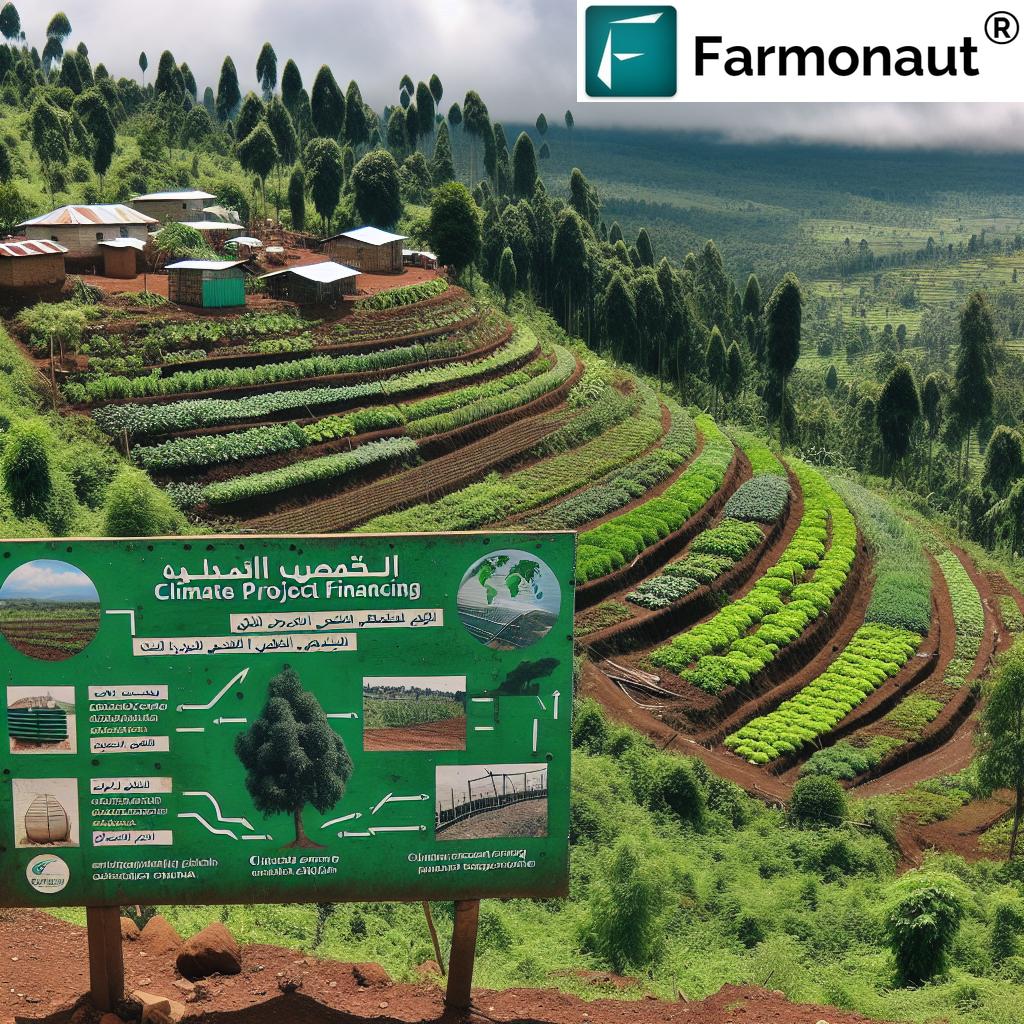Revolutionizing Nigerian Agriculture: Sustainable Farming Techniques Boost Food Security and Economic Growth in Niger State
“Niger State’s sustainable farming initiatives have prepared over 500,000 hectares for cultivation, boosting food security and economic growth.”
In recent years, we have witnessed a remarkable transformation in Nigeria’s agricultural landscape, particularly in Niger State. The implementation of sustainable agriculture and food security initiatives has paved the way for a new era of farming, one that promises to address long-standing challenges while propelling the nation towards greater economic prosperity. In this comprehensive exploration, we’ll delve into the revolutionary changes taking place in Nigerian agriculture, with a special focus on the impressive strides made in Niger State under the leadership of Governor Mohammed Umaru Bago.
The Dawn of a New Agricultural Era in Nigeria
Nigeria, Africa’s most populous nation, has long grappled with the challenge of feeding its growing population while simultaneously striving for economic growth. The recent developments in sustainable agriculture, particularly in Niger State, are offering a beacon of hope for the entire country. We’ve seen firsthand how the adoption of mechanized farming techniques and modern crop cultivation methods are reshaping the agricultural sector, leading to unprecedented improvements in crop yields and food security.

At the heart of this agricultural revolution lies a commitment to sustainable practices that not only boost productivity but also ensure the long-term viability of farming in Nigeria. The implementation of advanced irrigation systems and agricultural land preparation techniques has been pivotal in this transformation. With over 500,000 hectares prepared for cultivation in Niger State alone, we are witnessing the birth of a new agricultural powerhouse.
Mechanized Farming: The Game-Changer in Nigerian Agriculture
One of the most significant advancements in Nigerian agriculture has been the widespread adoption of mechanized farming techniques. This shift from traditional, labor-intensive methods to modern, efficient practices has been instrumental in boosting crop yields and reducing post-harvest losses. In Niger State, the introduction of state-of-the-art machinery for plowing, planting, and harvesting has revolutionized the way farmers approach their work.
- Increased efficiency in land preparation
- Precision planting for optimal crop spacing
- Mechanized harvesting to minimize losses
- Reduced labor costs and improved working conditions for farmers
The impact of mechanization extends beyond just increased productivity. It has opened up new opportunities for young Nigerians to engage in agriculture, making farming more attractive as a career choice. This influx of young, tech-savvy farmers is bringing fresh ideas and innovation to the sector, further driving its growth and development.
Modern Crop Cultivation Methods: Nurturing the Seeds of Change
Alongside mechanization, the adoption of modern crop cultivation methods has been a cornerstone of Nigeria’s agricultural transformation. In Niger State, farmers are embracing innovative techniques that maximize yield while minimizing environmental impact. These methods include:
- Precision agriculture using satellite technology
- Integrated pest management for reduced chemical use
- Crop rotation and intercropping for soil health
- Use of improved, drought-resistant seed varieties
These modern cultivation methods are not only increasing crop yields but also improving the quality of produce. Farmers in Niger State are now able to grow crops that meet international standards, opening up new export opportunities and contributing to Nigeria’s economic growth.
Advanced Irrigation Systems: Quenching the Thirst for Progress
Water scarcity has long been a challenge for Nigerian agriculture, particularly in the drier northern regions. The implementation of advanced irrigation systems in Niger State is addressing this issue head-on, ensuring that crops receive the right amount of water at the right time. These systems include:
- Drip irrigation for water-efficient crop watering
- Sprinkler systems for even water distribution
- Rainwater harvesting techniques
- Smart irrigation controls using weather data and soil moisture sensors
By optimizing water usage, these irrigation systems are not only improving crop yields but also conserving this precious resource. This is particularly crucial in the face of climate change, which is expected to exacerbate water scarcity in many parts of Nigeria.
The Maize Miracle: A Testament to Agricultural Success
“Advanced irrigation systems and mechanized farming in Nigeria have significantly improved maize harvests, transforming the agricultural landscape.”
One of the most striking examples of the success of these sustainable farming techniques is the remarkable increase in maize harvests. Maize, a staple crop in Nigeria, has seen unprecedented yields thanks to the combination of mechanized farming, modern cultivation methods, and advanced irrigation systems. In Niger State, farmers are reporting record-breaking harvests, with some areas seeing yields double or even triple compared to previous years.

This maize miracle is not just boosting food security; it’s also driving economic growth. With increased production, Nigeria is moving closer to self-sufficiency in maize, reducing the need for imports and potentially opening up export opportunities. The success in maize cultivation serves as a model for other crops, demonstrating the transformative power of sustainable agriculture.
Agricultural Land Preparation: Laying the Groundwork for Success
The preparation of over 500,000 hectares of land for cultivation in Niger State is a testament to the scale and ambition of Nigeria’s agricultural revolution. This massive undertaking has involved:
- Soil analysis and improvement
- Land clearing and leveling
- Implementation of erosion control measures
- Development of access roads for better farm connectivity
This meticulous land preparation is essential for the success of sustainable farming practices. It ensures that the soil is in optimal condition for crop growth, reduces the risk of environmental degradation, and makes it easier for farmers to implement modern cultivation techniques.
Agritech Solutions: Farming in the Digital Age
The integration of technology into agriculture is playing a crucial role in Nigeria’s agricultural transformation. Agritech solutions are empowering farmers with data-driven insights, helping them make informed decisions about planting, irrigation, and harvesting. Some of the key agritech solutions being deployed in Niger State include:
- Satellite-based crop monitoring systems
- IoT devices for real-time soil and weather data collection
- Mobile apps for farm management and market access
- Blockchain technology for supply chain transparency
These technologies are not only improving productivity but also making agriculture more attractive to the younger generation. By bridging the gap between traditional farming and modern technology, agritech is helping to secure the future of Nigerian agriculture.
Economic Growth Through Agricultural Development
The impact of sustainable agriculture extends far beyond the farm. In Niger State and across Nigeria, we’re seeing how agricultural development is driving broader economic growth. This is manifesting in several ways:
- Creation of jobs in agriculture and related industries
- Increased income for farmers, boosting local economies
- Development of agro-processing industries
- Reduction in food imports, improving Nigeria’s trade balance
The success of sustainable agriculture is also attracting investment into the sector, both from domestic and international sources. This influx of capital is further accelerating the pace of agricultural development and contributing to Nigeria’s overall economic growth.
Food Security: A National Priority
At the heart of Nigeria’s agricultural revolution is the goal of achieving food security for its growing population. The initiatives in Niger State are making significant strides towards this objective. By increasing crop yields, diversifying agricultural production, and improving post-harvest storage and distribution, Nigeria is moving closer to self-sufficiency in food production.
The impact on food security is multifaceted:
- Increased availability of staple crops like maize, rice, and cassava
- Improved nutritional outcomes through diversified crop production
- Enhanced resilience to climate shocks and market fluctuations
- Reduced dependence on food imports
As these initiatives continue to expand and mature, we can expect to see even greater improvements in Nigeria’s food security situation, benefiting millions of citizens across the country.
The Role of Government and Policy
The success of sustainable agriculture in Niger State is in large part due to supportive government policies and initiatives. Governor Mohammed Umaru Bago’s administration has been instrumental in creating an enabling environment for agricultural transformation. Key policy measures include:
- Subsidies for agricultural inputs and machinery
- Investment in rural infrastructure
- Support for agricultural research and extension services
- Facilitation of access to credit for farmers
These policies are aligned with the broader national goals of poverty alleviation and job creation, demonstrating how agriculture can be a powerful tool for achieving these objectives.
Challenges and Future Prospects
While the progress in Nigerian agriculture has been remarkable, challenges remain. These include:
- Climate change and its impact on farming
- The need for continued investment in infrastructure
- Ensuring equitable access to new technologies and practices
- Addressing land tenure issues
However, the momentum generated by the successes in Niger State and other parts of Nigeria provides a strong foundation for addressing these challenges. As sustainable farming techniques continue to evolve and spread, we can expect to see even greater improvements in agricultural productivity, food security, and economic growth.
Conclusion: A Green Revolution for Nigeria
The agricultural transformation taking place in Niger State and across Nigeria represents nothing less than a green revolution. By embracing sustainable farming techniques, leveraging technology, and prioritizing food security, Nigeria is charting a course towards a more prosperous and food-secure future.
As we continue to witness the positive impacts of these initiatives, it’s clear that agriculture will play a central role in Nigeria’s development story. The success in Niger State serves as an inspiration and a model for other states and countries facing similar agricultural challenges.
In the words of former Niger State First Lady and senator Zainab Kure, Governor Bago’s initiatives in agriculture are worthy of emulation by all state governors. As Nigeria moves forward, the lessons learned and successes achieved in sustainable agriculture will undoubtedly contribute to the country’s broader development agenda, paving the way for a more resilient, productive, and prosperous agricultural sector.
Impact of Sustainable Farming Techniques in Niger State
| Agricultural Aspect | Before Implementation | After Implementation | Percentage Change |
|---|---|---|---|
| Crop Yield (tons/hectare) | 2.5 | 4.2 | +68% |
| Cultivated Land Area (hectares) | 300,000 | 500,000 | +66.7% |
| Water Usage Efficiency (%) | 40% | 65% | +62.5% |
| Farmer Income (Naira/year) | 500,000 | 850,000 | +70% |
| Food Security Index (0-100) | 45 | 68 | +51.1% |
FAQ Section
Q: What are the main sustainable farming techniques being implemented in Niger State?
A: The main sustainable farming techniques include mechanized farming, modern crop cultivation methods, advanced irrigation systems, and agritech solutions such as satellite-based crop monitoring.
Q: How has mechanized farming improved agriculture in Niger State?
A: Mechanized farming has increased efficiency in land preparation, enabled precision planting, improved harvesting processes, and reduced labor costs, leading to significant improvements in crop yields.
Q: What impact have these sustainable farming techniques had on maize production?
A: Maize production has seen remarkable improvements, with some areas reporting yields doubling or even tripling compared to previous years, thanks to the combination of mechanized farming, modern cultivation methods, and advanced irrigation systems.
Q: How are agritech solutions contributing to agricultural development in Nigeria?
A: Agritech solutions are providing farmers with data-driven insights, enabling better decision-making in planting, irrigation, and harvesting. They’re also making agriculture more attractive to younger generations by bridging traditional farming with modern technology.
Q: What are the broader economic impacts of these agricultural initiatives?
A: The initiatives are creating jobs in agriculture and related industries, increasing farmer incomes, developing agro-processing industries, and reducing food imports, all of which contribute to overall economic growth in Nigeria.
Leveraging Technology for Sustainable Agriculture
As we continue to witness the transformation of Nigerian agriculture, it’s crucial to highlight the role of technology in driving this change. Innovative platforms like Farmonaut are at the forefront of this agricultural revolution, offering advanced solutions that empower farmers and agribusinesses alike.
Farmonaut provides cutting-edge satellite-based farm management solutions that are accessible via Android, iOS, web/browser apps, and API. These tools are instrumental in making precision agriculture more affordable and accessible to farmers across Nigeria and beyond.
- Real-time Crop Health Monitoring: Farmonaut’s satellite imagery analysis allows farmers to monitor crop health in real-time, providing valuable insights into vegetation health (NDVI) and soil moisture levels.
- AI-powered Advisory Systems: The Jeevn AI system offers personalized farm advice, weather forecasts, and expert crop management strategies, helping farmers make informed decisions.
- Blockchain-based Traceability: For agribusinesses, Farmonaut’s blockchain solutions ensure transparency and security in supply chains, enhancing trust and reducing fraud.
- Resource Management Tools: Features for fleet and resource management help optimize operations and reduce costs for larger agricultural enterprises.
By integrating these advanced technologies into farming practices, Nigerian agriculture is poised to make even greater strides in productivity, sustainability, and economic impact.
For those interested in exploring these innovative solutions, Farmonaut offers several ways to access their services:
For developers and businesses looking to integrate Farmonaut’s satellite and weather data into their own systems, the Farmonaut API offers flexible solutions. Detailed information on how to use the API can be found in the API Developer Docs.
The Future of Nigerian Agriculture
As we look to the future, the path forward for Nigerian agriculture is clear. By continuing to embrace sustainable farming techniques, leveraging advanced technologies, and fostering innovation, Nigeria has the potential to become a global agricultural powerhouse. The success stories emerging from Niger State serve as a blueprint for other regions, demonstrating what can be achieved through a combination of visionary leadership, supportive policies, and the adoption of modern farming practices.
The journey towards agricultural transformation is ongoing, and there will undoubtedly be challenges along the way. However, with the foundation that has been laid and the momentum that has been generated, we are confident that Nigerian agriculture will continue to thrive, contributing to food security, economic growth, and sustainable development for generations to come.




















